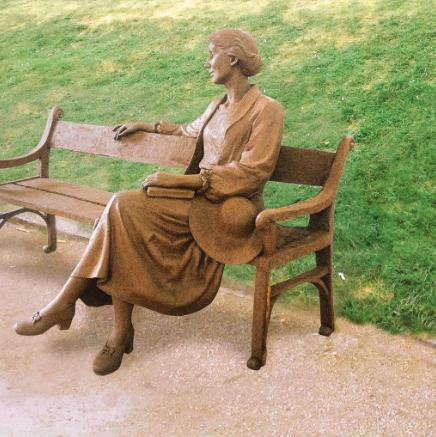
Credit: HT Print
Shraddha Walkar had cut ties with her family when she walked out of home to move in with her boyfriend, Aaftab Poonawala in 2020. When a friend, Lakshman Nadar told her father in mid-September this year that he hadn’t heard from her for months, the father got in touch with the police.
It was only then, after interrogation, that Aaftab confessed he had killed Shraddha, cut her body into pieces, stored them in a fridge he purchased for the purpose and then disposed of them bit by bit late at night in the adjoining Mehrauli forest.
Friends of the couple have told the police that Aaftab was violent in the past. In 2020, “Shraddha sent me a WhatsApp message…telling me if I did not get her out of the house, Aaftab would kill her,” Nadar said. He listened but stopped short of reporting him to the police as Shraddha had asked him not to.
Another friend, Rajat Shukla said Shraddha had told him that Aaftab beats her. “She wanted to leave but couldn’t do so.”
In 2020, Shraddha was hospitalised in Vasai, Mumbai with bruises on her body. There are reports that these injuries were caused by Aaftab.
Rush to judgment

Credit: Raj K Raj/ Hindustan Times
The haste to unearth a morality tale in the murder of a 26-year-old has muddied the core of the issue: Intimate partner violence.
[See Pavitra Kanagaraj’s chart, Women and the menace of intimate partner violence here]
On social media, many seized on the religion of the accused as evidence of a ‘love jihad’ conspiracy, warning Hindu women to beware of Muslim men.
Others saw it as a consequence of too much freedom. Listen to your parents, they cautioned. They know best.
In a trial court in Delhi where Aaftab was to be produced by police seeking extension of his custody by a magistrate, lawyers shouted slogans demanding the death sentence for him.
Trolls did not spare even Shraddha. Posts on her Instagram blamed her for inviting her terrible fate by going against her parents’ wishes with some saying she deserved her macabre end for dating a Muslim man.
The myth-making ignored the fact that one in three women in India is subject to domestic violence. Cruelty by a husband or his relatives is the single-largest complaint by women, accounting for 31.8% of all crimes against women in 2021, according to the National Crime Records Bureau.
There were 7,093 dowry deaths, around 20 a day, in 2021.
Despite the data, even law-makers seemed to miss the point on domestic violence. On Wednesday, Shiv Sena MP Sanjay Raut came dangerously close to advocating a public lynching: “Shraddha’s killer should be hanged publicly and our women should remain cautious. People might call it ‘love jihad’ or whatever but our women are dying. In such cases, the law cannot do anything, it has to be dealt with by society.”
Union minister Kaushal Kishore went on TV, blaming educated girls for leaving parents for live-in relationships.
A crime in open sight
India has had a law to protect women from domestic violence since 2005. The civil law focuses on providing relief to aggrieved women, including compensation, protection and right to residence in a shared household. It defines violence as not just physical but also emotional and financial.
The conviction rate for domestic violence crimes was only 30.4% in 2021.
“There are so many cases every day,” said Sohini Bhattacharya of Breakthrough, a women’s rights organisation. “We only react when there is a particularly heinous crime.”
Far from being a ‘private matter’ between two individuals, intimate partner violence is a social scourge. “Women killed by intimate partners or family members account for 58% of all female homicide victims reported globally,” found a 2018 study by the United Nations Office on Drugs and Crime.
But instead of creating public outrage, violence at home and in public and official spaces “is met mainly with silence and impunity,” finds a more recent November 2022 paper by Swarna Rajagoplan and Natasha Singh Raghuvanshi.
“Domestic violence can be an extremely isolating experience. Who do you turn to?” said Ritambhara Mehta of Breakthrough India. “There is total public apathy towards overall violence against women.”
Monika Tewari of Shakti Shalini that runs a shelter home in Delhi agreed. “In every second home there is a case of domestic violence. It is so prevalent that it has been normalised.”
Irina’s story
In November 2018, six months after she and her infant daughter had been thrown out of her marital home, Chandigarh-based golfer Irina Brar went to the police station to lodge a complaint of domestic violence. The cops she said had, earlier in the day, witnessed her trying unsuccessfully to get into the house to retrieve a few possessions. They laughed, “Madam, nothing will happen,” she said they told her.
It took a magistrate’s order for the police to finally file an FIR (first information report) only in January 2020. Two years later it took another intervention, this time by the high court, for the police to file a charge-sheet in February 2022. When it was finally filed, crucial documents such as her own statement were missing from the file, she said.
“I am an educated woman and am struggling to get justice in my case, despite knocking on every door,” Irina told me over the phone. “What happens to women who don’t have the advantages that I do?”
Irina said police had called her a ‘greedy’ woman for wanting her own possessions back and a bad example to her daughter for spending so much time at police stations and courts. On other occasions at the police station, they loudly point her out to other women who have come to lodge complaints. “Look at this golfer madam. Nothing happened in her case and nothing will happen to you,” they taunt, she said.
“It seems the police want to further traumatise domestic violence victims so that they retract their complaints entirely,” she said.
She remains shut out of her matrimonial home and is battling 15 separate cases, she said. “But I’m quite resilient and am not going to give up that easily.” To better fight in court, she has now taken up the study of law.
Speaking up against domestic violence means going down a ‘very, very sinister path’ where the legal system is broken. “Half the women leave the cases mid-way,” There is no support system that she is aware of. Families often urge women to compromise and stay in abusive marriages or then walk out without a fight.
Instead, a small group of women in Chandigarh who are also fighting domestic violence cases have made their own WhatsApp group and reach out to support each other, she said.
India’s domestic violence epidemic

Credit: Unsplash
It’s easy to see Aaftab Poonawala as a violent psychopath, an aberration in our structured social order. But domestic violence is deeply prevalent, making headlines only when the victim is killed or grievously injured.
Even that list is alarmingly long.
On November 8, in Madhya Pradesh’s Jabalpur district, Abhijeet Patidar killed his 22-year-old girlfriend, Shilpa Jharia over ‘infidelity’ by slitting her throat. He then posted a video of her body on social media. A week later, Patidar remains on the run from the police.
In Mumbai, reports are coming in of a 24-year-old BPO employee being brutally assaulted by her boyfriend, Amey Darekar. The woman has been admitted into hospital with multiple fractures to her spine and Darekar has been arrested.
On Tuesday, a 17-year-old girl was pushed to her death by her jilted lover in Lucknow.
On Wednesday, Delhi police arrested a jeweller’s son identified only as Rahul for strangling his 22-year-old partner for suspected infidelity.
On Thursday, the body of a married woman, an Asha worker, was found stuffed inside a sack in a drain in Haryana’s Karnal district. The police have arrested her partner.
This is just a week’s listing. If this doesn’t worry you, what will?
If you are the victim of domestic violence, please reach out for help. You can call:
Women’s Helpline 181
Jagori (Delhi) 011-26692700, 8800996640
Shakti Shalini (Delhi) 011-24373737 (Monday to Friday, 11 am-6 pm)
Sneha (Mumbai) 9833052684

IN NUMBERS
Of the 252,594 Pocso cases sent to trial since 2014, only 77,340 have been decided. In other words, 70% of all Pocso cases sent to trial in the last eight years still seek justice.
Source: Protsahan India Foundation report analysing 10 years of the Pocso Act.
SEEN AND HEARD
“We will go by the tradition of the temple that women in certain age-group will only be allowed. There is no room for any controversy.”
Opening the annual pilgrimage to Sabarimala temple two years after the Covid-19 pandemic shut it down, the Kerala state temple affairs minister K Radhakrishnan seemed blissfully oblivious to the 2018 Supreme Court order allowing all women entry
GOING PLACES

CREDIT: WOMEN’SART
She’s smiling, one hand placed on a book on her lap and looking out at the riverside at Richmond-upon-Thames where she set up Hogarth Press and lived for 10 years. The first full-size bronze statue of Virginia Woolf was unveiled on Wednesday and it’s beautiful.
STORIES YOU MIGHT HAVE MISSED
Former mutt pontiff raped 13-year-old, sexually assaulted other minors: Police charge-sheet

Credit: ANI
Shivamurthy Murugha Sharanu, the former pontiff of a prominent mutt in Karnataka’s Chitradurga district, sexually assaulted minor girls and raped a 13-year-old multiple times after calling her to his room between 2013 and 2015, according to the 694-page police charge-sheet filed in the case. The 64-year-old was arrested on September 1
Kathua rape-accused to be tried as an adult
Shubham Sangra, one of eight accused in the Kathua gang-rape and murder of an eight-year-old tribal girl in January 2018 will face trial as an adult and not a juvenile, the Supreme Court has held. “Leniency towards juveniles is emboldening them to commit heinous crimes,” the court observed.
And the good news…

Caption: Kerala education minister V Sivankutty Credit: Facebook
The Kerala government on Monday announced awareness programmes and lessons against body shaming in school curriculums.
And more good news…
Making a rare exception for 32 retired women short service commission officers of the Indian Air Force, the Supreme Court on Wednesday deemed them to be granted permanent commission and thus made them eligible for pension
AROUND THE WORLD
In Washington, the US Senate took a crucial step toward passing landmark legislation to provide federal protections for same-sex marriage as 12 Republicans joined Democrats to advance the Respect for Marriage Act. More in the New York Times
In London, the story of Noor Inayat Khan, the British World War II spy whose Indian heritage traces back to Tipu Sultan has been adapted for the stage. Giving it a three-star (out of five) review, The Guardian says this “beguilingly played story reflects on bravery and culpability”.
| Were you forwarded this email? Did you stumble upon it online? Sign up here. |
| That’s it for this week. Do you have a tip or information on gender-related developments that you’d like to share? Write to me at: namita.bhandare@gmail.com. |